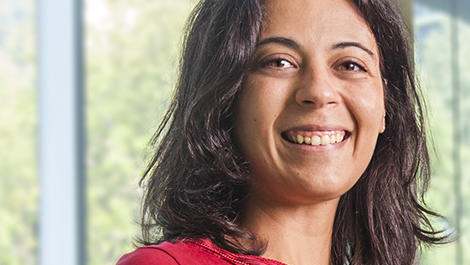
Research Webzine
Toward streamlined healthcare
Professor Nadia Lahrichi, Department of Mathematics and Industrial Engineering
Professor Lahrichi believes that the patient-treatment process will be transformed within 20 years. She is working on the use of data in real time to maximize material and human resources in hospitals.

Professor Lahrichi believes that the patient-treatment process will be transformed within 20 years. She is working on the use of data in real time to maximize material and human resources in hospitals. Her goal is to devise tools that would make a hospital patient’s experience more fluid, from finding the doctor to the delivery of treatment and including various tests ordered.
“Improving patients’ experience can take various forms, like making sure they start treatment at the optimal moment for their health, managing emergencies and staff work schedules efficiently and ensuring the optimal performance of the use of rooms,” she says. “With all the talk about personalized healthcare these days, we hope our solutions help each patient receive treatment adapted to his or her own needs.” The researcher uses numerous variables – logistical, operational and even psychological – in her mathematical models.
Reducing patient wait times is a concern for the hospitals she deals with, including the Centre intégré de cancérologie de Laval, Jewish General Hospital and McGill University Health Centre, among others.
“We calculated that currently, a patient waits on average four hours per 40 minutes of actual medical care. Better management of a patient’s file could significantly reduce this wait time. Plus, it could eliminate redundancy of tests and paperwork.”
She believes that soon, machines will analyse data like blood sugar, pulse or blood pressure and will send the results to physicians. The result? Less waste of hospital resources and fewer hospital visits for the patient.




